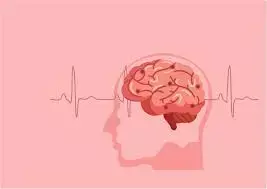- Home
- Medical news & Guidelines
- Anesthesiology
- Cardiology and CTVS
- Critical Care
- Dentistry
- Dermatology
- Diabetes and Endocrinology
- ENT
- Gastroenterology
- Medicine
- Nephrology
- Neurology
- Obstretics-Gynaecology
- Oncology
- Ophthalmology
- Orthopaedics
- Pediatrics-Neonatology
- Psychiatry
- Pulmonology
- Radiology
- Surgery
- Urology
- Laboratory Medicine
- Diet
- Nursing
- Paramedical
- Physiotherapy
- Health news
- Fact Check
- Bone Health Fact Check
- Brain Health Fact Check
- Cancer Related Fact Check
- Child Care Fact Check
- Dental and oral health fact check
- Diabetes and metabolic health fact check
- Diet and Nutrition Fact Check
- Eye and ENT Care Fact Check
- Fitness fact check
- Gut health fact check
- Heart health fact check
- Kidney health fact check
- Medical education fact check
- Men's health fact check
- Respiratory fact check
- Skin and hair care fact check
- Vaccine and Immunization fact check
- Women's health fact check
- AYUSH
- State News
- Andaman and Nicobar Islands
- Andhra Pradesh
- Arunachal Pradesh
- Assam
- Bihar
- Chandigarh
- Chattisgarh
- Dadra and Nagar Haveli
- Daman and Diu
- Delhi
- Goa
- Gujarat
- Haryana
- Himachal Pradesh
- Jammu & Kashmir
- Jharkhand
- Karnataka
- Kerala
- Ladakh
- Lakshadweep
- Madhya Pradesh
- Maharashtra
- Manipur
- Meghalaya
- Mizoram
- Nagaland
- Odisha
- Puducherry
- Punjab
- Rajasthan
- Sikkim
- Tamil Nadu
- Telangana
- Tripura
- Uttar Pradesh
- Uttrakhand
- West Bengal
- Medical Education
- Industry
General Anesthesia as good as Sedation during Intraarterial Treatment for Stroke: Study

It is speculated that the anaesthetic strategy during endovascular therapy for stroke may have an impact on the outcome of the patients. The authors hypothesized that conscious sedation is associated with a better functional outcome 3 months after endovascular therapy for the treatment of stroke compared with general anaesthesia. In this single-blind, randomized trial, patients received either standardized general anaesthesia or standardized conscious sedation. Blood pressure control was also standardized in both groups. The primary outcome measure was a modified Rankin score less than or equal to 2 (0 = no symptoms; 5 = severe disability) assessed 3 months after treatment. The main secondary outcomes were complications, mortality, reperfusion results, and National Institutes of Health Stroke Scores on days 1 and 7.
The results of the study are:
- Of 351 randomized patients, 345 were included in the analysis.
- The primary outcome occurred in 129 of 341 (38%) of the patients: 63 (36%) in the conscious sedation group and 66 (40%) in the general anaesthesia group
- Patients in the general anaesthesia group experienced more intraoperative hypo- or hypertensive episodes, while the cumulative duration was not different (mean ± SD, 36 ± 31 vs. 39 ± 25 min; P = 0.079).
- The time from the onset and from arrival to puncture was longer in the general anaesthesia group while the time from onset to recanalization was similar in both groups.
- Recanalization was more often successful in the general anaesthesia group
- The incidence of symptomatic intracranial haemorrhage was similar in both groups.
Thus, the functional outcomes 3 months after endovascular treatment for stroke were similar to general anaesthesia and sedation. Our results, therefore, suggest that clinicians can use either approach.
Reference:
General Anesthesia versus Sedation, Both with Hemodynamic Control, during Intraarterial Treatment for Stroke: The GASS Randomized Trial by Axelle Maurice, et al. published in the Preoperative Medicine.
DOI: https://doi.org/10.1097/ALN.0000000000004142
Dr. Shravani Dali has completed her BDS from Pravara institute of medical sciences, loni. Following which she extensively worked in the healthcare sector for 2+ years. She has been actively involved in writing blogs in field of health and wellness. Currently she is pursuing her Masters of public health-health administration from Tata institute of social sciences. She can be contacted at editorial@medicaldialogues.in.
Dr Kamal Kant Kohli-MBBS, DTCD- a chest specialist with more than 30 years of practice and a flair for writing clinical articles, Dr Kamal Kant Kohli joined Medical Dialogues as a Chief Editor of Medical News. Besides writing articles, as an editor, he proofreads and verifies all the medical content published on Medical Dialogues including those coming from journals, studies,medical conferences,guidelines etc. Email: drkohli@medicaldialogues.in. Contact no. 011-43720751


